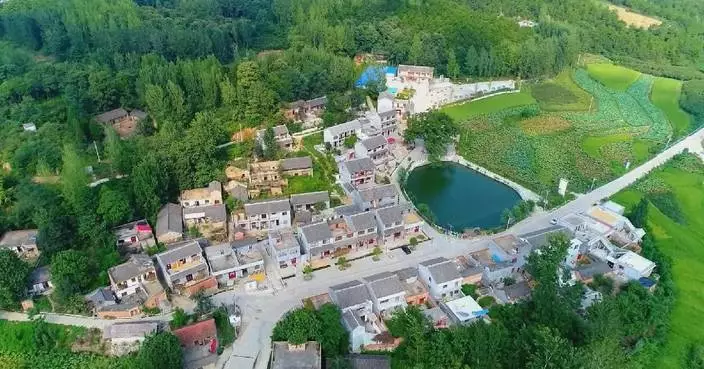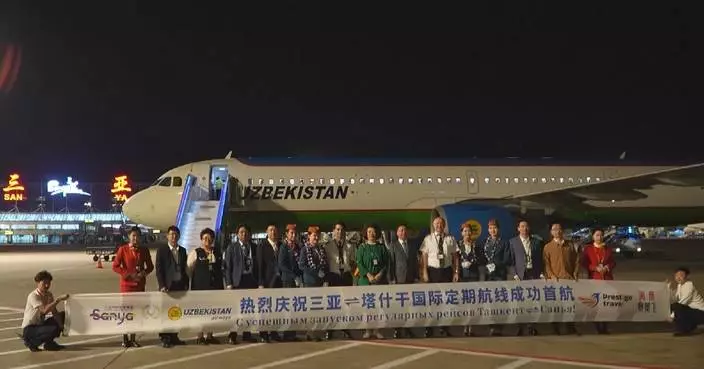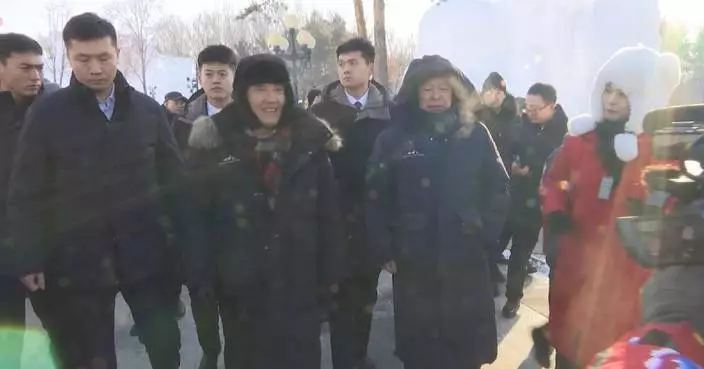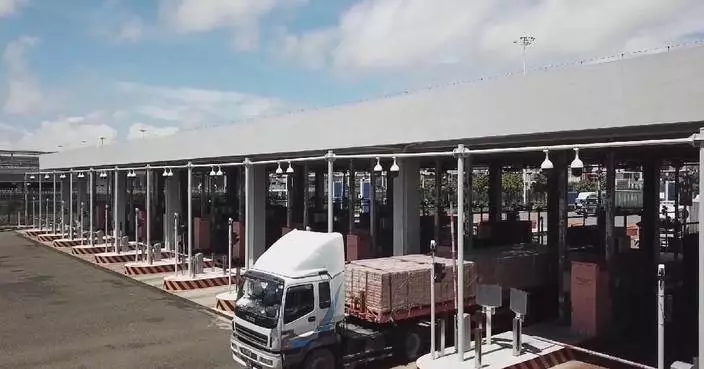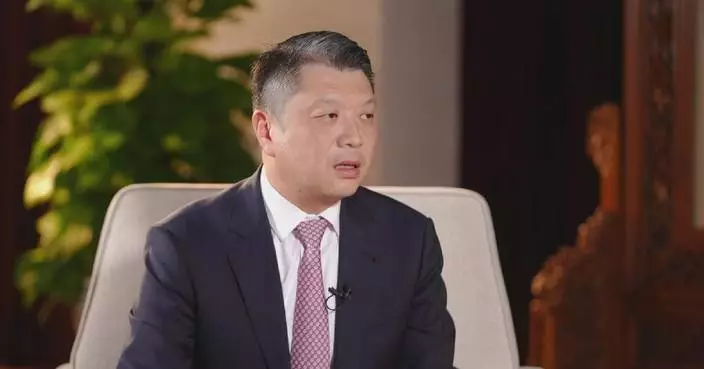China’s first intelligent field plant phenotype precision identification platform went into operation recently in Sanya City, south China’s Hainan Province, which is a milestone in the country’s development of intelligent breeding.
The phenotype of a plant is a term used to describe observable characteristics of the plant, such as its appearance, and some inherent physiological characteristics, such as resistance to drought and diseases.
In an experimental field of the National Nanfan Research Institute of the Chinese Academy of Agricultural Sciences, a large piece of equipment is moving across the field. The equipment, called the field plant phenotype precision identification platform, can move according to the preset track and can be remotely controlled. While moving, the equipment can scan the plants with its six sensors, just like a CT machine for plants.
"The ultimate goal is to achieve high-throughput, large-scale, efficient and precise collection of germplasm resources, which can be four to five times higher than the efficiency of the traditional manual collection," said Jin Xiuliang, a researcher at the institute.
Although the equipment looks simple from the outside, it contains six high-precision image acquisition devices such as multi-spectral, thermal infrared, and chlorophyll fluorescence devices. Data can be collected at fixed times and points according to experimental needs, and the collection of a germplasm material can be completed within 30 seconds.
After the data collected through this platform is transmitted to the data analysis center, researchers can more quickly and accurately screen out germplasm resources with excellent traits, laying the foundation for subsequent crop breeding.
"The plant phenotype identification facility at the National Nanfan Research Institute is a milestone in the field of crop science in China. It can greatly enhance the independent innovation capabilities of germplasm innovation, gene mining, and variety breeding, and enhance the international competitiveness of China's seed industry," said Li Huihui, vice president of the institute.
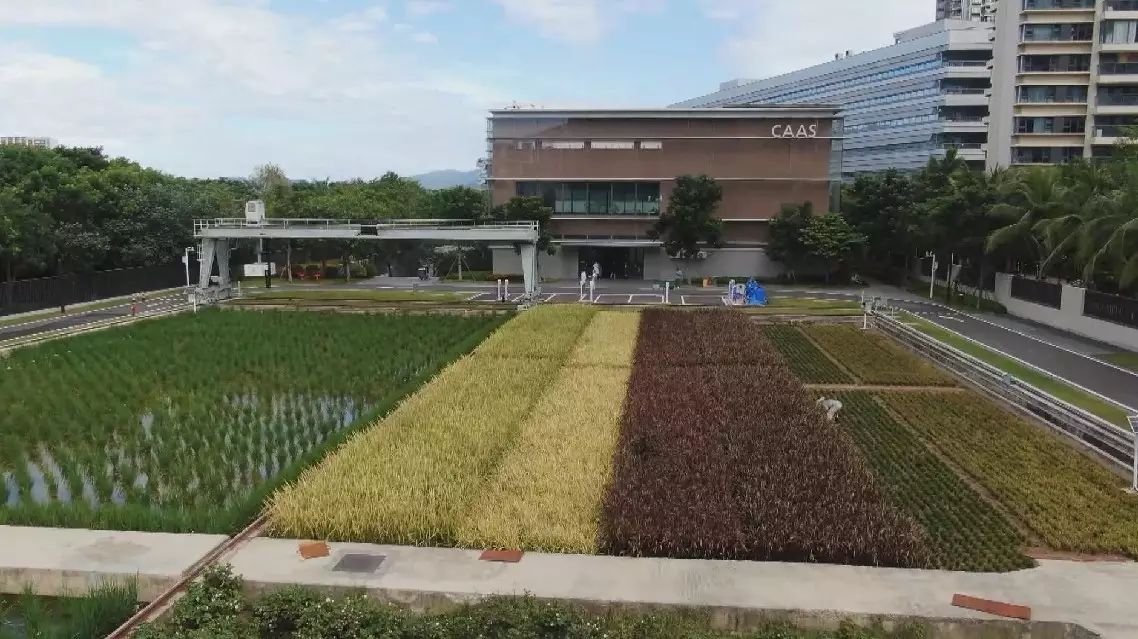
China makes major progress in smart crop breeding



